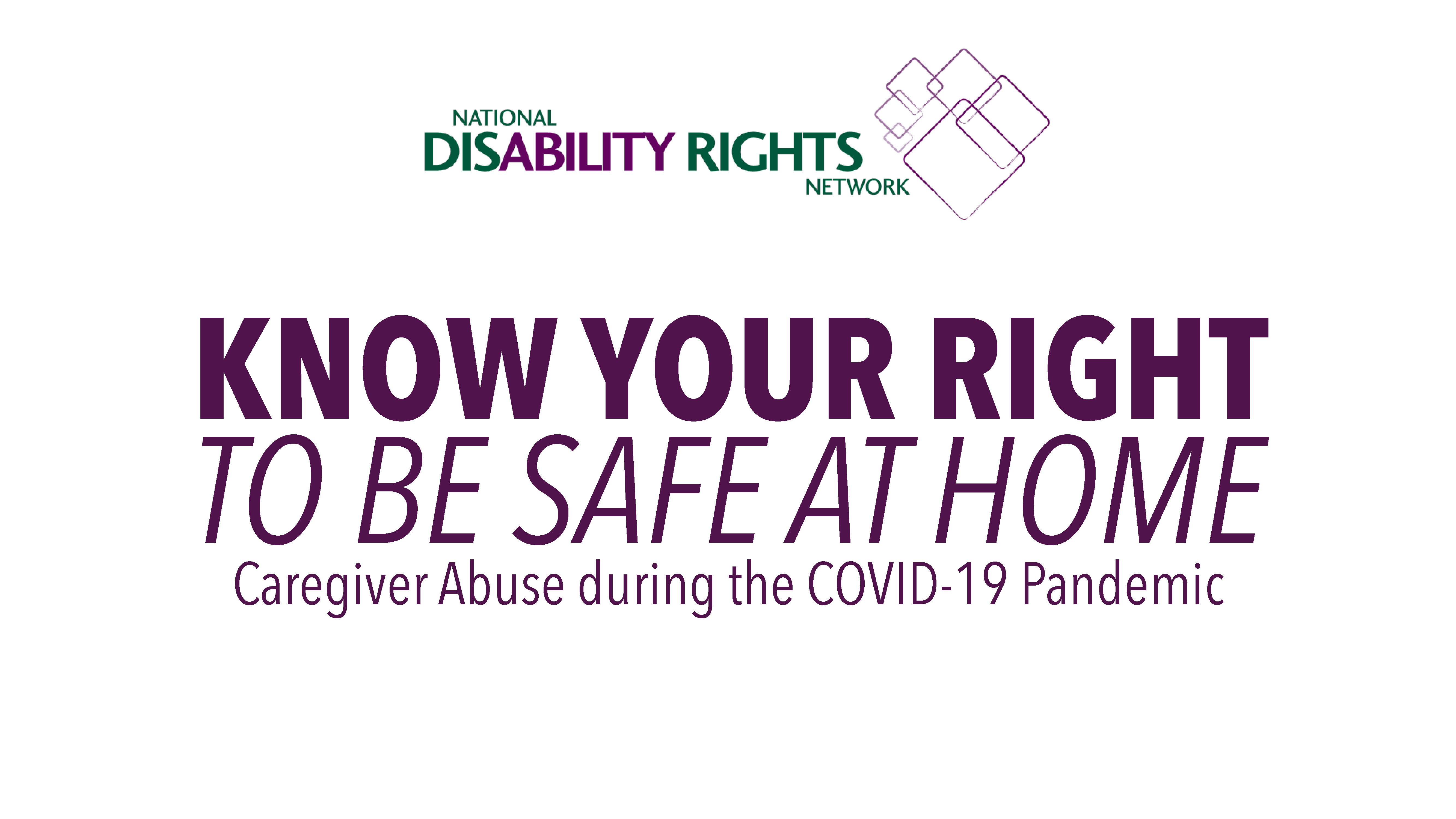You have the right to feel comfortable with your caregivers! The Coronavirus pandemic has caused disruptions in care for many people with disabilities which may lead to abusive alternatives as well as problems with primary caregivers. Victim advocacy experts from Disability Rights Wisconsin have a few tips on recognizing caregiver abuse and requesting help. Check out this video message from Pam Malin, Advocacy Specialist, and Nadya Rosen, Managing Attorney. Together they encourage anyone experiencing violence during the pandemic to make a plan, know your options, and know that NO caregiver ever has the right to abuse you.
There are several ways that caregivers can be abusive. Some are easier to identify than others:
VIOLENCE – physical and sexual:
- Actual physical violence or threats of violence
- Just because this is your partner/spouse, you don’t have to agree to do something sexually that you don’t want
ECONOMIC ABUSE:
- When the caregiver (paid or unpaid) uses your property or money to their benefit.
WITHHOLD, MISUSE, OR DELAY NEEDED SUPPORTS:
- When they don’t provide the medical help or medication the way your doctor intended. Or if they take your medication for their personal use. Or if they break your equipment or refuse to provide care or equipment that is required.
MINIMIZE, JUSTIFY, AND BLAME:
- When they make you feel like your pain or your feelings are not real. Or when they blame you for making them treat you poorly. Or when they tell other people that you can’t be believed.
ISOLATION:
- When they purposely isolate you or control your contacts and communication with family or friends or other supports that isn’t a direct reflection of the ordered COVID-19 isolation safety requirements.
EMOTIONAL ABUSE:
- When they punish or make fun of you. Or if they ignore your personal requests like personal tastes, culture, traditions, or religion.
INTIMIDATION:
- When they threaten to hurt you or destroy your property, including your pets.
What can you do to get help or feel safe?
One idea is to make a safety plan. A safety plan helps to give your ideas about what to do if things get tough or dangerous.
- There are local and national Domestic Violence and Sexual Assault hotlines that are working. The National Domestic Violence Hotline is available by phone, email, or text.
- The National Deaf Domestic Violence Hotline is also available.
- You can also text a friend to let them know how you are feeling. Or use Facebook messenger to contact someone for support.
- Contact a local disability service agency and ask for help. Your abuser may not think disability service providers can help you so they may allow that conversation to happen outside of their hearing.
- It might not always be safe to talk but if you can connect, there are options out there for you.
<< Return to “Know Your Rights during the COVID-19 Pandemic” main page

